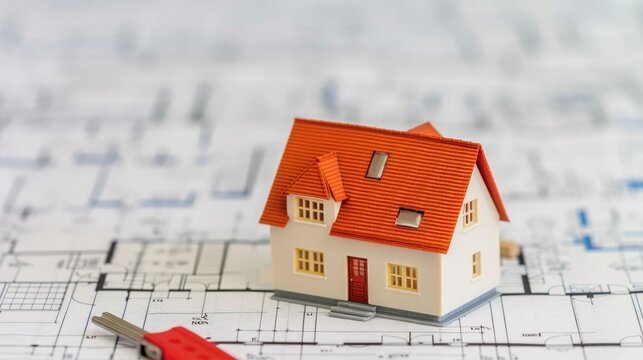Understanding Zoning Laws and Their Impact on Local Body Approval
Introduction
Zoning laws play a crucial role in urban development, influencing everything from residential housing to commercial establishments. These laws regulate land use, ensuring organized growth while balancing environmental and economic considerations. For property developers, businesses, and homeowners, understanding zoning laws is essential, as they directly impact the process of obtaining Local Body Approval for construction or modifications. This article delves into zoning laws, their significance, and how they affect local body approvals.
What Are Zoning Laws?
Zoning laws are regulations that govern land use in specific geographic areas. They determine what type of structures can be built, how properties can be utilized, and the restrictions imposed on development. Common zoning classifications include:
Residential Zoning: Covers housing developments, apartments, and single-family homes.
Commercial Zoning: Includes businesses, retail shops, and office buildings.
Industrial Zoning: Covers factories, warehouses, and manufacturing units.
Agricultural Zoning: Reserves land for farming, livestock, and rural development.
Mixed-Use Zoning: Allows a blend of residential and commercial activities.
These regulations vary by jurisdiction and are enforced by local municipalities or urban planning bodies.
Importance of Zoning Laws in Urban Planning
Zoning laws are vital for structured urban development. They help in:
Preventing Overcrowding: By setting limits on population density and building heights.
Maintaining Order: Separating incompatible land uses, such as industrial units from residential areas.
Promoting Safety: Ensuring fire safety, waste disposal, and structural integrity.
Preserving Environment: Protecting natural resources, green spaces, and water bodies.
Enhancing Property Values: Stabilizing real estate markets and preventing unauthorized construction.
Local Body Approval: A Key Step in Development
What is Local Body Approval?
Local body approval refers to the authorization granted by municipal or urban planning authorities before any construction, renovation, or land use modification takes place. This approval ensures that proposed developments comply with zoning laws, building codes, and environmental regulations.
Why is Local Body Approval Necessary?
Securing Local Body Approval is mandatory to:
Ensure legal compliance with zoning and land-use laws.
Prevent unauthorized construction or illegal modifications.
Maintain infrastructure harmony in urban and rural areas.
Safeguard public health, safety, and environmental standards.
Avoid legal disputes and penalties associated with non-compliance.
How Zoning Laws Affect Local Body Approval
The zoning classification of a property dictates the type of approval required from the local authorities. Here’s how:
1. Compliance with Zoning Regulations
Before issuing Local Body Approval, municipal authorities check if the proposed project aligns with the zoning classification. If a developer wishes to construct a commercial building in a residential zone, a rezoning application or special permit may be required.
2. Building Plan Approval
The construction blueprint must adhere to zoning laws regarding setbacks, height restrictions, floor area ratio (FAR), and land coverage. Any deviations might lead to project rejection or require additional permissions.
3. Environmental and Infrastructure Considerations
Authorities evaluate the project’s impact on traffic, waste management, sewage systems, and environmental sustainability. If the zoning laws dictate eco-sensitive guidelines, developers must incorporate sustainable practices to secure approval.
4. Rezoning and Variance Requests
In cases where the existing zoning laws do not permit a particular development, applicants can request rezoning or a variance. Rezoning involves changing the land-use classification, while a variance allows exceptions to zoning laws under specific conditions.
5. Community Involvement
Public hearings and neighborhood consultations are often part of the zoning approval process. Community members can raise objections, support, or suggest modifications to proposed projects, influencing the final decision on Local Body Approval.
Steps to Obtain Local Body Approval
To streamline the approval process, follow these steps:
Check Zoning Regulations: Understand the zoning laws applicable to your property.
Prepare a Development Plan: Ensure the construction plans comply with zoning requirements.
Submit an Application: File an approval request with the local municipal authority.
Environmental & Safety Compliance: Address infrastructure and environmental concerns.
Attend Public Hearings (if applicable): Engage with local stakeholders.
Obtain Clearance Certificates: Secure approvals from relevant departments (e.g., fire, health, environment).
Receive Final Approval: Once all requirements are met, Local Body Approval is granted.
Conclusion
Zoning laws are fundamental to structured urban development, influencing the approval process for any new construction or land use modification. Understanding how these laws interact with Local Body Approval ensures a smoother, legally compliant project execution. By adhering to zoning regulations and seeking necessary approvals, property owners and developers can avoid legal complications and contribute to sustainable urban planning.
Before embarking on any construction project, it is crucial to consult local authorities or zoning experts to navigate the complexities of zoning laws and Local Body Approval requirements effectively.

